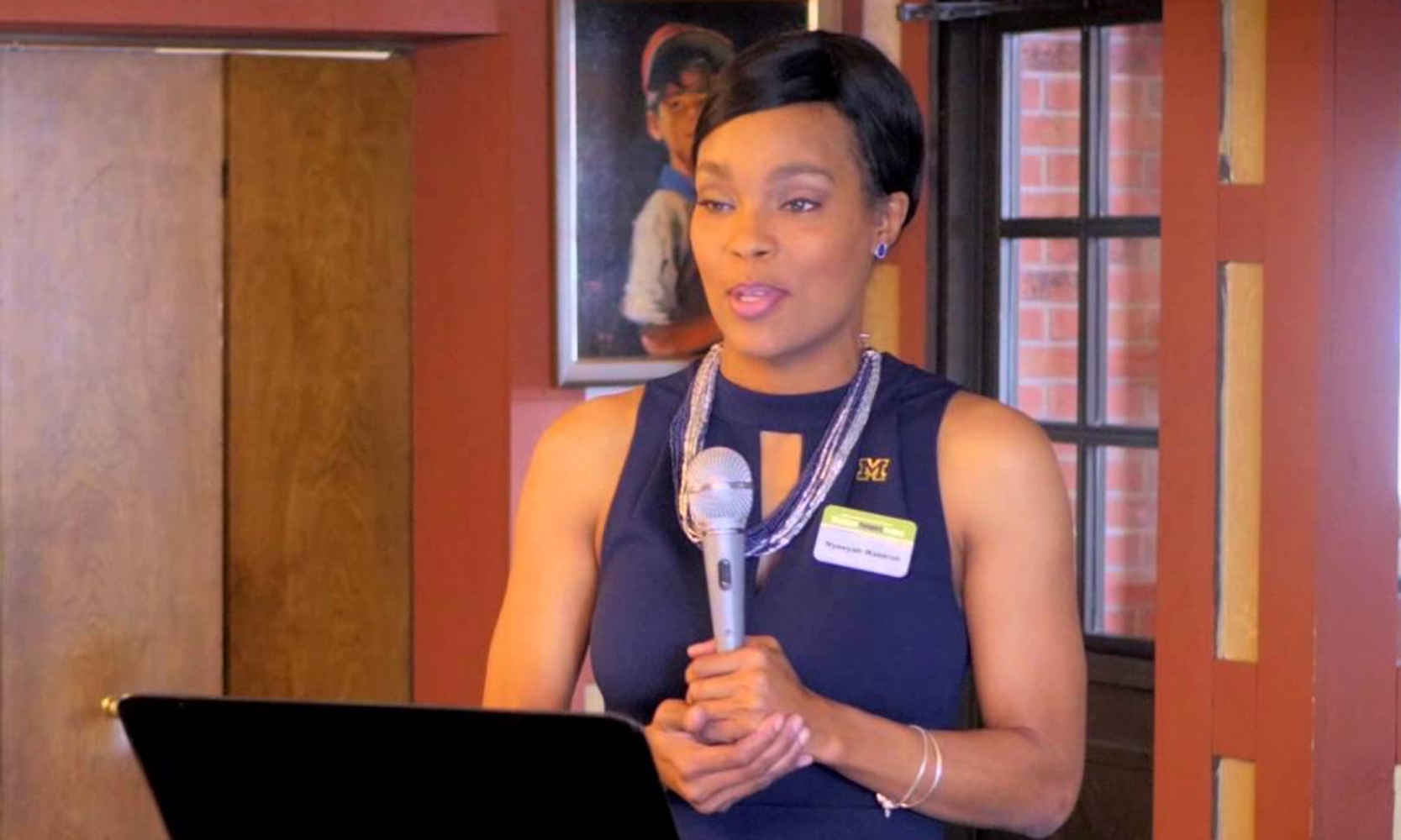
Nyeeyah Waldron prides herself on her strong work ethic. With her recent degree completion, Waldron said she now has something even more important to add to the business world—an education on how to create positive, inclusive environments for those with strong work ethics to thrive in.
Waldron, a student in UM-Dearborn’s Master of Public Administration program, has years of work experience to draw from. She started working at 16. And she’s had several high-profile brand marketing positions.
For her work, she’s been given awards and praise. But she’s also gotten promotions without pay while others received more money, head pats from a male supervisor and culturally insensitive remarks.
So she decided to give her resignation, leave corporate America and become an advocate for those in uncomfortable workplace situations. She chose UM-Dearborn to help her become that champion.
“I worked so hard to get where I was in corporate America, and I didn’t want to give up my success. But I had constant anxiety, my health started to suffer, and my doctor warned me that black women in their 30s are at higher risk for stroke because of the type of situation I was in. I realized I wasn’t alone,” she said.
She’s since served as a spokesperson about women’s economic security through the Michigan Partners Project. She led seminars about leadership for adults and has mentored young girls, ages 7-12. She’s presented to legislators about creating policy to promote inclusion.
“I was working to bring awareness. But to be an even stronger advocate, I needed to learn how to change policy at the government level from academic experts,” said Waldron, noting that research shows that happier employees are more productive. “We’ve moved beyond Affirmative Action and Equal Opportunity and diversified the workforce. Now we need to make sure companies are creating a workplace environment that supports the people they have hired.”
The College of Arts, Sciences, and Letters graduate said she chose UM-Dearborn for graduate school because she noticed the diversity among professors and students while looking on the website and visiting campus.
“Being exposed to varying perspectives provides one an avenue to expand and grow, to connect and find the commonality that exists within us all. If you take the time to sit down and talk to someone, even if you are from different backgrounds, you will find that you have something in common—other than being human, of course, ” she said. “To me, when learning how to implement inclusion, having different voices represented is important. And a degree from the University of Michigan has power.”
Waldron said her goal is to work in the federal government. But, along the way, she looks forward to continuing to advocate for inclusion through educational and awareness endeavors.
“I don’t want us to sing Kumbaya and sweep issues under the rug. This type of change comes from having conversations, connecting with each other and giving respect,” she said. “Treating people based on their talents and abilities—not on how they look or what their cultural background is—will create a stronger workforce. Not only will it lead to productivity, it will lead to personal satisfaction. And that will make us all better neighbors.”



